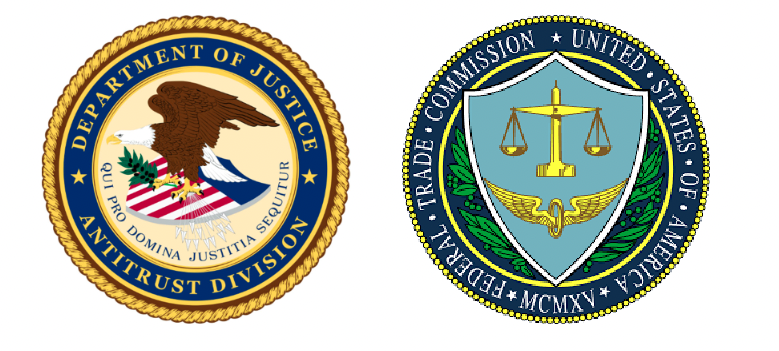Proposed Merger Guidelines, Antitrust, Competition and Commercial Surveillance: CDD tells DoJ and FTC to stop enabling ”Big Data” companies to consolidate

September 18, 2023
Comment on the 2023 Merger Guidelines
Center for Digital Democracy
FTC-2023-0043
The Center for Digital Democracy (CDD) urges the U.S. Department of Justice (DoJ) and the Federal Trade Commission (FTC) to adopt the proposed merger guidelines. The guidelines are absolutely necessary to ensure the U.S. operates a 21st century antitrust regime and doesn’t keep repeating the mistakes of the last several decades. Failures to understand and address contemporary practices, especially related to data assets, has brought us further consolidation in key markets, including in the digital media. Over rhe decades, CDD has been at the forefront of NGOs sounding the alarm on the consolidation of the digital marketing and advertising industry, including our opposition to such transactions as the Google/Doubleclick merger, Facebook/Instagram, Google/YouTube, Google/AdMob, Oracle/BlueKai and Datalogix, among others.
Regulatory approval for these deals has accelerated the consolidation of the online media marketplace, where a tiny handful of companies—Alphabet (Google), Meta and Amazon—dominate the marketplace in terms of advertising revenues and online marketing applications. It has also helped deliver today’s vast commercial surveillance marketplace, with its unrelenting collection and use of information from consumers, small businesses and other potential competitors. The failure to address effectively the role that data assets and processing capabilities play in merger transactions has had unfortunate systemic consequences for the U.S. public. Privacy has been largely lost as a result, since by permitting these data-related deals both agencies signaled that policymakers approved unfettered data-driven commercial surveillance operations. It has also led to the widespread adoption by the largest commercial entities and brands, across all market verticals, to adopt the “Big Data” and personalized digital marketing applications developed by Google, Meta and Amazon—furthering the commercial surveillance stranglehold and helping fuel platform dominance. It has also had a profound and unfortunate impact on the structure of contemporary media, which have embraced the data-driven commercial surveillance paradigm with all its manipulative and discriminatory effects. In this regard, the failure to ensure meaningful antitrust policies has had consequences for the health of our democracy as well.
The proposed guidelines should aid regulators better address specific transactions, their implications for specific markets, and the wider “network effects” that such digitally connected mergers trigger. An overall guideline for antitrust authorities should be an examination of the data assets assembled by each entity. Over the last half-decade or so, nearly every major company—regardless of “vertical” market served—has become a “big data” company, using both internal and external assets to leverage a range of data and decision intelligence designed to gather, process and make “actionable” data insights. Such affordances are regularly used for product development, supply, and marketing, among other uses. Artificial intelligence and machine learning applications are also “baked in” to these processes, extending the affordances across multiple operations. Antitrust regulators should inventory the data and digital assets of each proposed transaction entity, including data partnerships that extend capabilities; analyze them in terms of specific market capabilities and industry-wide standards; and review how a given combination might further anti-competitive effects (especially through leveraging data assets via cloud computing and other techniques). As markets further converge in the digital era, where, for example, data-driven marketing operations affect multiple sectors, we suggest that regulators will need to be both creative and flexible in addressing potential harms arising from cross-sectoral impacts. This point relates to Guideline 10 and “multi-sided” platforms.
Regarding Guideline 3, we urge the agencies to review how both Alphabet/Google and Meta especially, as a result of prior merger approvals, have been able to determine how the broader online marketplace operates—creating a form of “coordination” problem. The advertising and data techniques developed by the two companies have had an inordinate influence over the development of online practices generally, in essence “dictating” formats, affordances, and market structures. By allowing Alphabet and Meta to grow unchecked, antitrust regulators have allowed the dog to wag the “long tail” of the digital marketplace. We also want to raise the issue of partnerships, since they are a very significant feature of the online market today. In addition to consolidation through acquisitions, companies have assembled a range of data and marketing partners who provide significant resources to these entities. This leveraging of the market through affiliates undermines competition (as well as compounding related issues involving privacy and consumer protection). The steady stream of acquisitions in rapidly evolving markets, such as “over-the-top” streaming video, that further entrenches dominant players and also creates new hurdles for potential competitors, raises the issue addressed in Guideline 8. Repeatedly, especially in digitally connected markets (such as media), there are daily acquisitions that clearly further consolidation. Today they go unchecked, something we hope will be reversed under the proposed paradigm here.
Each proposed guideline is essential, in our view, to ensure that relevant information gathering and analysis are conducted for each proposed transaction. We are at a critical period of transition for markets, as data, digital media and technological progress (AI especially) continue to challenge traditional perspectives on dominance and competition. Broader network effects, regarding privacy, consumer protection and impact on democratic institutions should also be addressed by regulators moving forward. The proposed DoJ and FTC merger guidelines will provide critical guidance for the antitrust work to come.